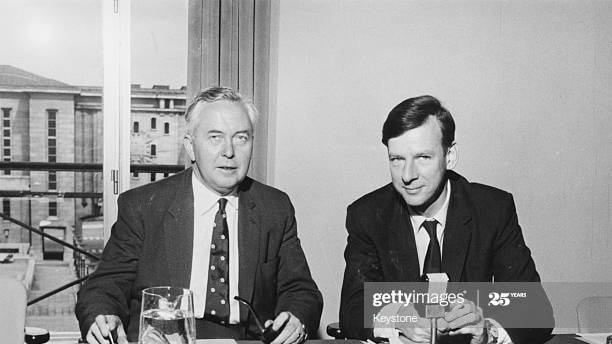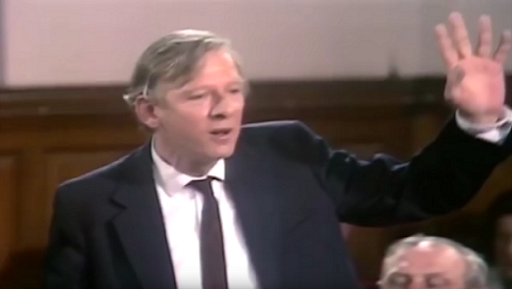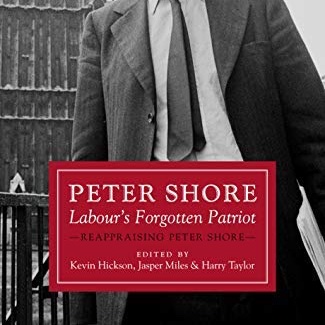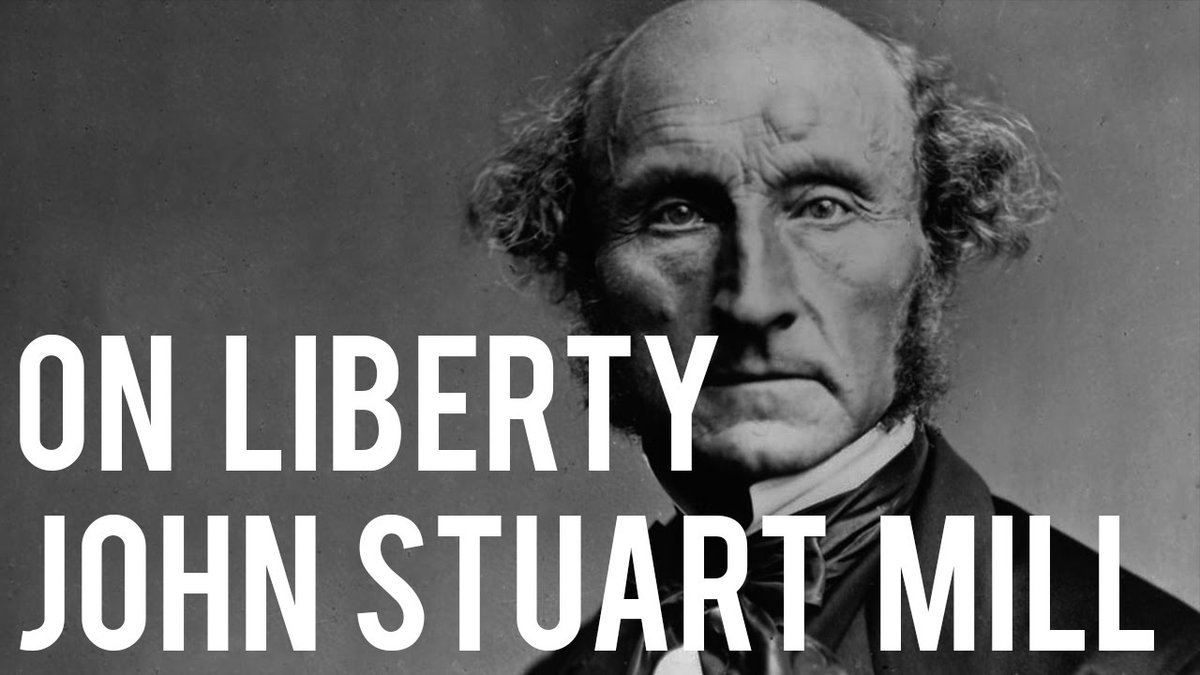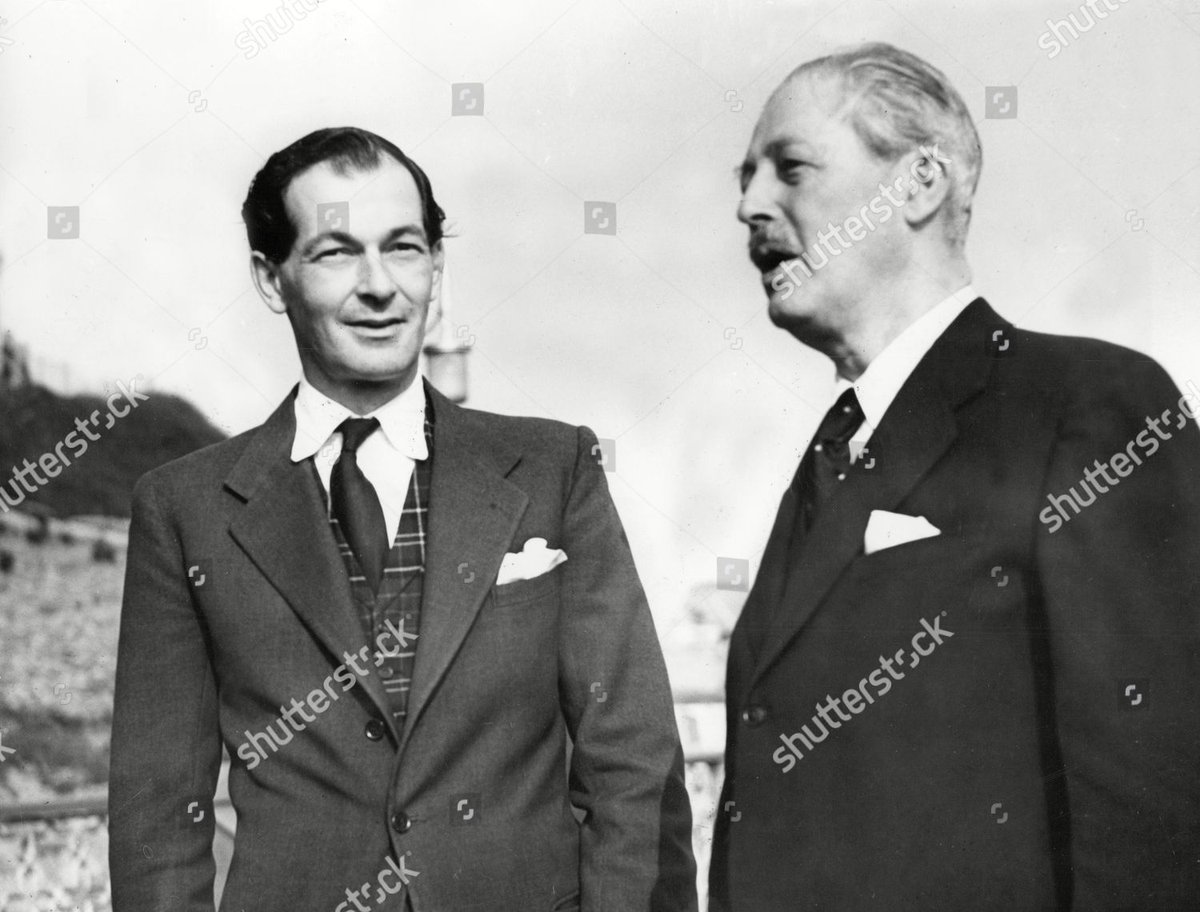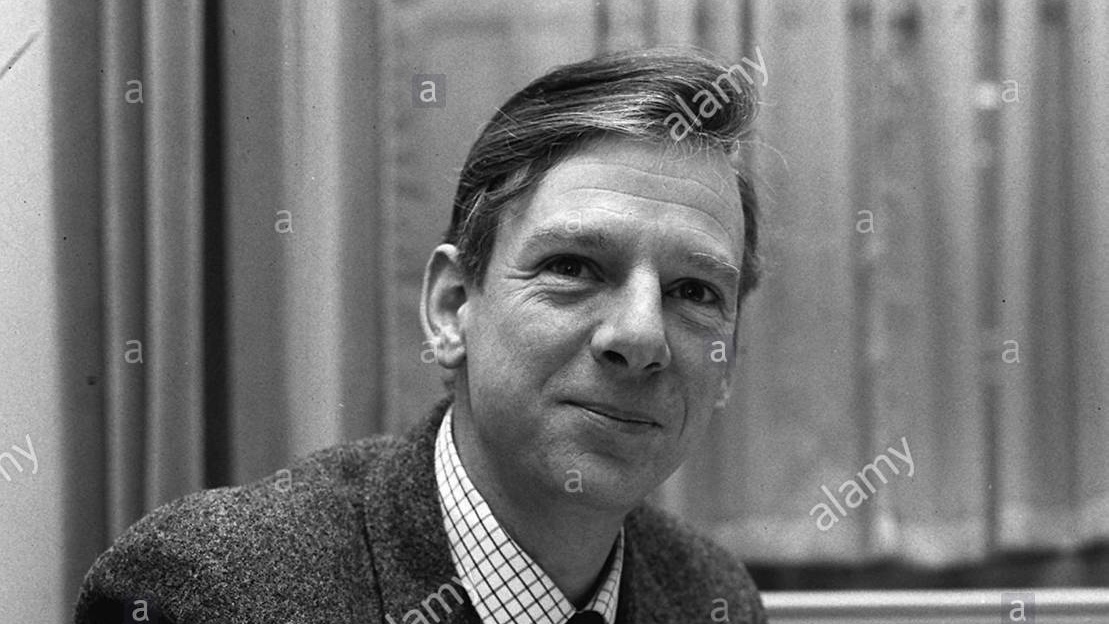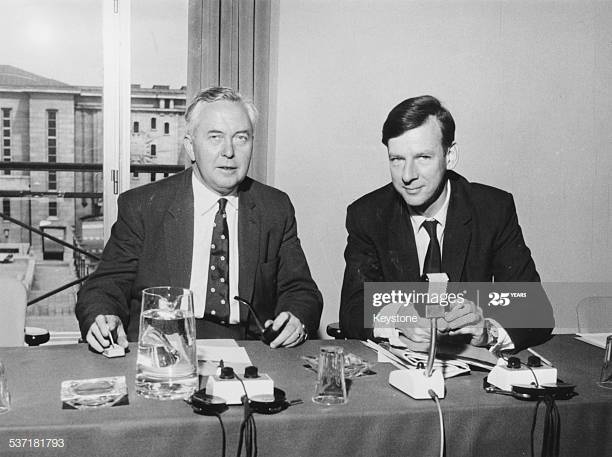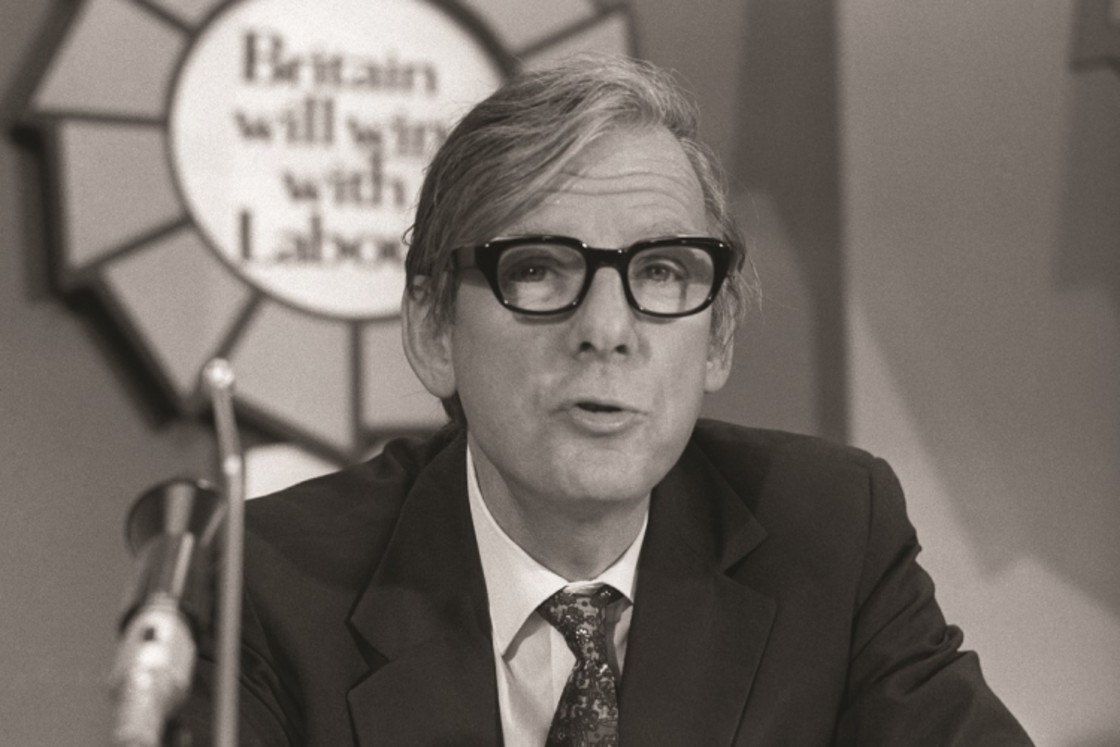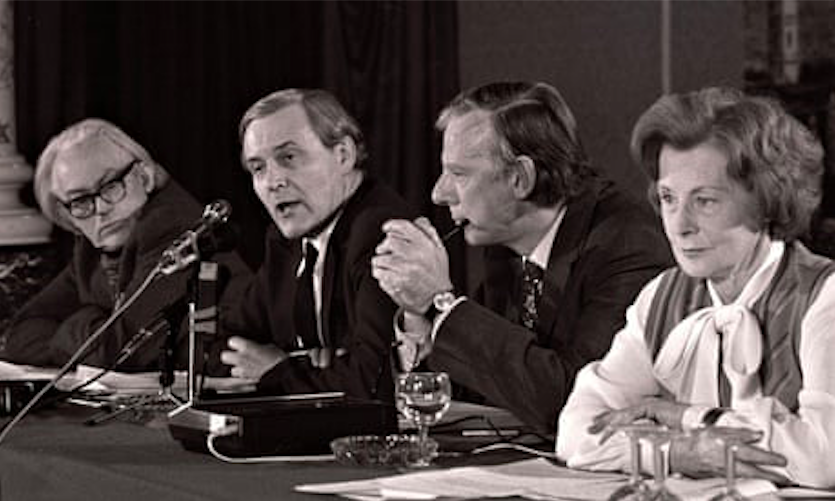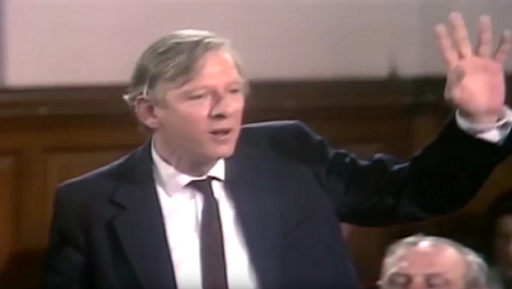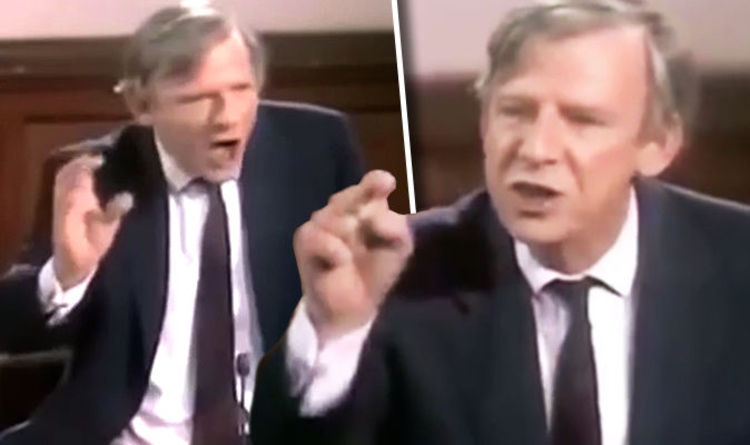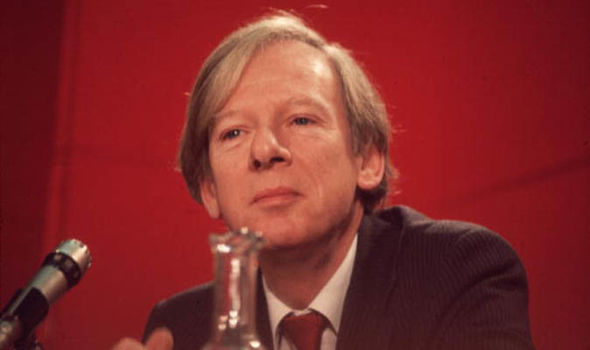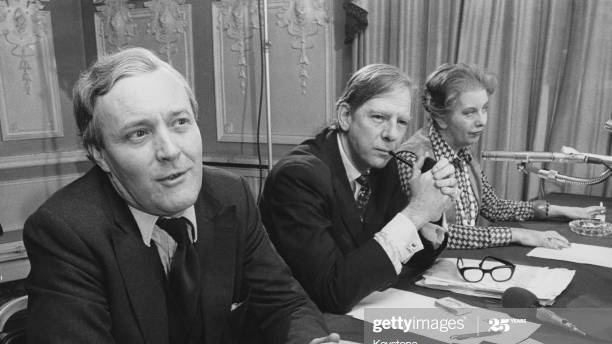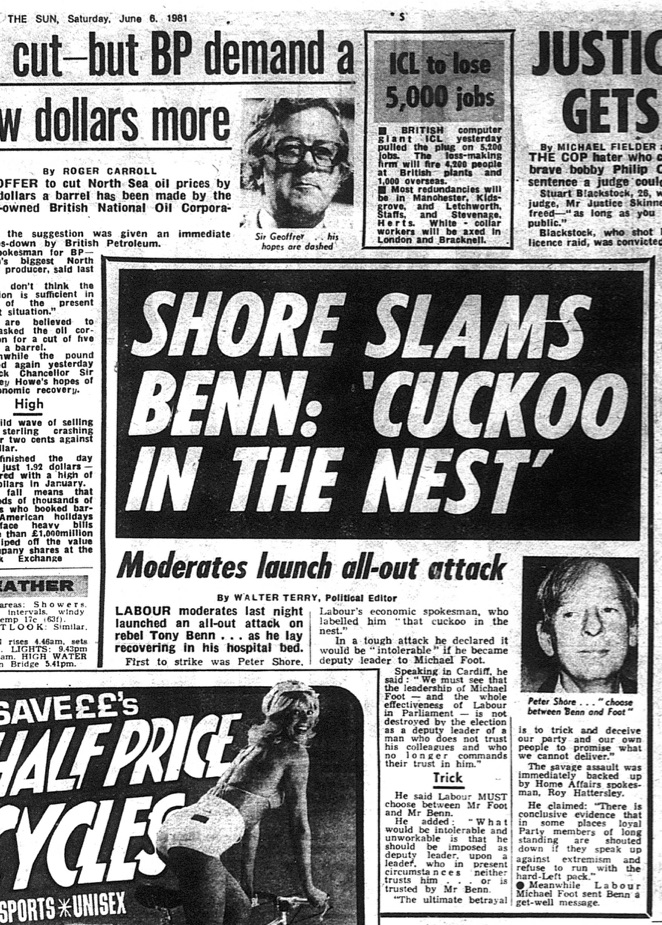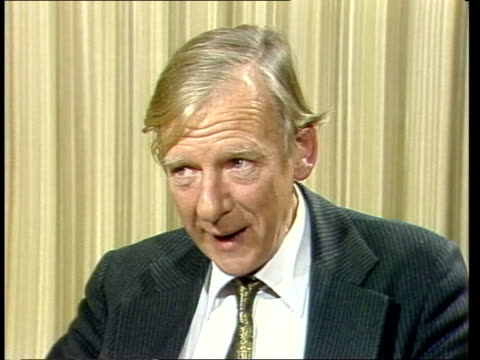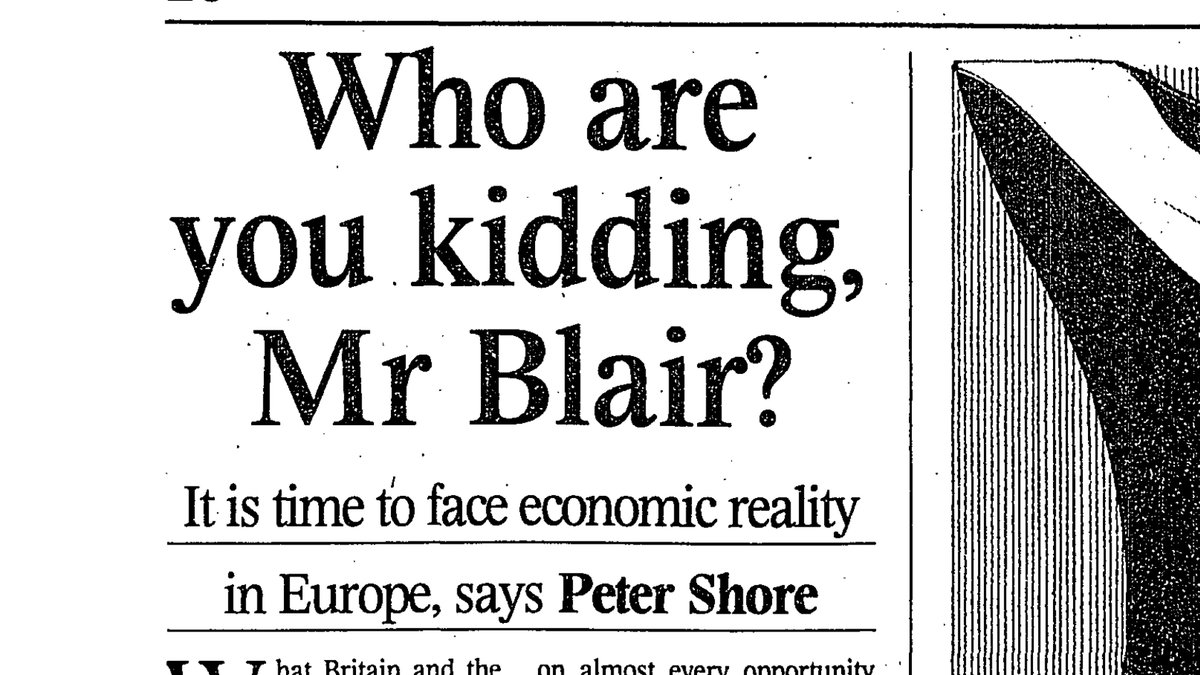Peter Shore: Labour& #39;s Forgotten Patriot?
He& #39;s the poster boy for Vote Leave & the fierce critic of both Bennism & Blairism. So is there still a place for Shore& #39;s politics in today& #39;s Labour?
As a biography reappraises him, a look back at his life & times
https://tidesofhistory.wordpress.com/2020/04/26/pure-shores-labours-forgotten-patriot/">https://tidesofhistory.wordpress.com/2020/04/2...
He& #39;s the poster boy for Vote Leave & the fierce critic of both Bennism & Blairism. So is there still a place for Shore& #39;s politics in today& #39;s Labour?
As a biography reappraises him, a look back at his life & times
https://tidesofhistory.wordpress.com/2020/04/26/pure-shores-labours-forgotten-patriot/">https://tidesofhistory.wordpress.com/2020/04/2...
Peter Shore was born in Great Yarmouth, the son of a commercial sea captain.
At a young age his family moved to Liverpool were he was educated at Quarrybank school, before King& #39;s College, Cambridge.
At a young age his family moved to Liverpool were he was educated at Quarrybank school, before King& #39;s College, Cambridge.
Although he read Marx as a student, he later cited John Stuart Mill’s On Liberty as ‘a most absorbing essay which forced you all the time to think about distinctions between ‘self-regarding’ and ‘other regarding’ actions’
Shore volunteered for the RAF in 1942 but failed to ‘get his wings’.
Instead he held the rank of War Substantive Flying Officer in the reserves.
Instead he held the rank of War Substantive Flying Officer in the reserves.
In 1952 Shore penned The Real Nature of Conservatism.
He attributed Tory successes to the ‘naturally hostile environment of democracy’, ‘new techniques of mass propaganda’ and to ‘the strength of irrational impulses in the shaping of political attitudes’.
He attributed Tory successes to the ‘naturally hostile environment of democracy’, ‘new techniques of mass propaganda’ and to ‘the strength of irrational impulses in the shaping of political attitudes’.
He rose inside the Labour internal machine as head of the research department from 1959-1964.
His works included Industry and Society (1957) but he failed to be elected for the seat of Halifax in 1959 – against future Cabinet Minister Maurice Macmillan.
His works included Industry and Society (1957) but he failed to be elected for the seat of Halifax in 1959 – against future Cabinet Minister Maurice Macmillan.
Shore formed part of the ‘1964 club’, alongside people such as Tony Benn, Shirley Williams and Gerald Kauffman to ‘modernise and overhaul and make it a vehicle for progressive action in our society’
Once elected for Stepney, Wilson made Shore his ‘right-hand man at the DEA’ after being one of his parliamentary private secretaries.
Peter Jay profiled him as ‘in many ways he is a man closely created in Mr Wilson’s image’
Peter Jay profiled him as ‘in many ways he is a man closely created in Mr Wilson’s image’
Shore was supported by his ‘extraordinary’ wife Elizabeth The Times profiled her in 1967:
‘She’s a doctor with a full time exciting job, four children and a home to run, yet she copes with everything…She is highly intelligent& #39;
‘She’s a doctor with a full time exciting job, four children and a home to run, yet she copes with everything…She is highly intelligent& #39;
On March 25th 1970, Shore was the first Labour Cabinet Minister to ‘break rank’ on EEC entry, urging the government to ‘Let the people decide’
‘People should not be surprised that a substantial majority of the British people are sceptical about joining’
‘People should not be surprised that a substantial majority of the British people are sceptical about joining’
Shore warned in 1970 – with Labour now out of office – of the dangers of a ‘common currency plan for EEC’
‘Investment would concentrate in high growth areas while low growth areas would be increasingly characterized by unemployment and labour migration’.
‘Investment would concentrate in high growth areas while low growth areas would be increasingly characterized by unemployment and labour migration’.
Shore gave up the opportunity to serve in Shadow Cabinet to pursue his anti-EEC campaigns.
‘I did not come into socialist politics in order to connive in the dismantling of the power of the British people’.
‘I did not come into socialist politics in order to connive in the dismantling of the power of the British people’.
He warned Labour MPs to begin speaking about the trade-offs for membership: ‘not in the drawing-rooms of politics but on the public platform and in Parliament itself’
Shore predicted that once the people understood the end state for the EEC
‘There will be a surge of anger far stronger and more determined than that which produced the Boston tea party and the declaration of American independence 200 years ago’
‘There will be a surge of anger far stronger and more determined than that which produced the Boston tea party and the declaration of American independence 200 years ago’
In the 1975 campaign, Shore addressed the Oxford Union, in what has been dubbed by Brexiters as ‘the greatest speech ever’
https://www.youtube.com/watch?v=ZoO6146qM5g">https://www.youtube.com/watch...
https://www.youtube.com/watch?v=ZoO6146qM5g">https://www.youtube.com/watch...
‘Have we so abandoned confidence in ourselves and hope in our future that we are ready to submit to the presumptuous powers of the Brussels authorities....
....to surrender to them not just our legitimate economic interests but the basic right of our Parliament and people to decide the policies, to make the laws and levy the taxes on our land?’
In 1980, Shore was talked of as a potential successor to James Callaghan.
A MORI poll showed that 33% of the public thought he would make a better Prime Minister than Margaret Thatcher (to her 39%)
A MORI poll showed that 33% of the public thought he would make a better Prime Minister than Margaret Thatcher (to her 39%)
He set out a personal manifesto to breakaway for the ‘stalemate state’ and reform unions:
‘We have to avoid as socialists a collective bargaining process that would in fact erode the solidarity and common interest of people at work by forcing them to bargain against each other’
‘We have to avoid as socialists a collective bargaining process that would in fact erode the solidarity and common interest of people at work by forcing them to bargain against each other’
As Shadow Chancellor he became the party’s biggest critic of Bennism.
He attacked the ‘deliberately poisoned and aggravated sense of betrayal’ and accused the left of the party of being in ‘a state of delirium’ having ‘pursued and assaulted itself’ after Thatcher’s victory.
He attacked the ‘deliberately poisoned and aggravated sense of betrayal’ and accused the left of the party of being in ‘a state of delirium’ having ‘pursued and assaulted itself’ after Thatcher’s victory.
He accused Benn of being the ‘cuckoo in the nest’ and that ‘the ultimate betrayal is to trick and deceive our party and our own people to promise what we cannot deliver’.
Two years later when Shore stood for leader, few believed he could unify a depressed party. He warned that the party was facing the electoral abyss:
‘I do not want a party poisoned by feuds and hatreds, misled by the clap-trap of demagogues injured and distracted by those who have no faith in the party itself nor in the democracy which our predecessors fought to create’
Shore claimed Labour ‘must reach the new society’ and that it had failed to ‘tune in’ to the concerns felt by the ‘new earning classes’:
‘We suffered not a defeat but a disaster. If we do not face this fact, if we hide our heads in the sand, still worse disasters befall us’
‘We suffered not a defeat but a disaster. If we do not face this fact, if we hide our heads in the sand, still worse disasters befall us’
In the early 90s he emerged as a somewhat ‘Father of the Eurosceptics’, as a prominent critic of the Maastricht Treaty.
Shore featured in the 1991 ‘Panorama: Great Europe debate’ and was highly critical of the ERM and a single currency. https://www.youtube.com/watch?v=yOQB3_L7X3U&t=561s">https://www.youtube.com/watch...
Shore was also critical of Tony Blair’s approach as Opposition leader
‘It is not good pretending we are no longer in favour of improving and expanding our community services. They are fundamental and the very instinct of the Labour movement’
‘It is not good pretending we are no longer in favour of improving and expanding our community services. They are fundamental and the very instinct of the Labour movement’
As the issue of the Euro grew in importance, Shore took Blair to task
‘What Britain needs is not the launch of an expensive pre-referendum campaign on the euro…but a total rethink of our whole position on Europe and the Euro’.
‘What Britain needs is not the launch of an expensive pre-referendum campaign on the euro…but a total rethink of our whole position on Europe and the Euro’.
Shore died in 2001.
Leading the tributes was Tony Blair
& #39;He made a huge contribution towards modernising the economy of the country and tackling urban deprivation& #39;
Leading the tributes was Tony Blair
& #39;He made a huge contribution towards modernising the economy of the country and tackling urban deprivation& #39;
‘Peter was a man of immense integrity with strong convictions and latterly played an important role in raising standards in public life…He was a great parliamentarian, a great patriot and a true servant of his constituents& #39;
The biography of Peter Shore: ‘Labour’s Forgotten Patriot’ is available from Biteback now. https://tidesofhistory.wordpress.com/2020/04/26/pure-shores-labours-forgotten-patriot/">https://tidesofhistory.wordpress.com/2020/04/2...

 Read on Twitter
Read on Twitter